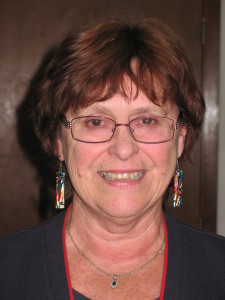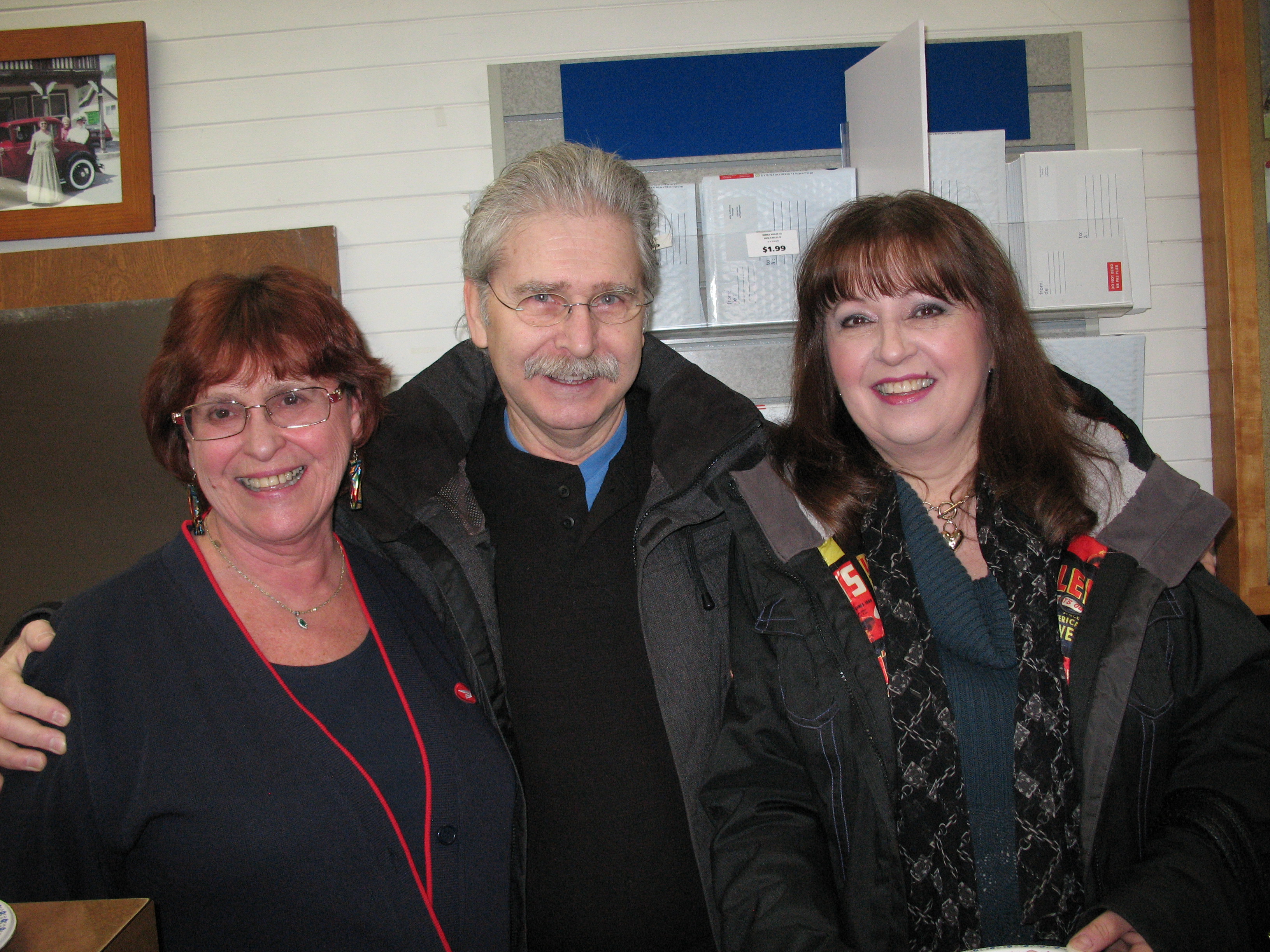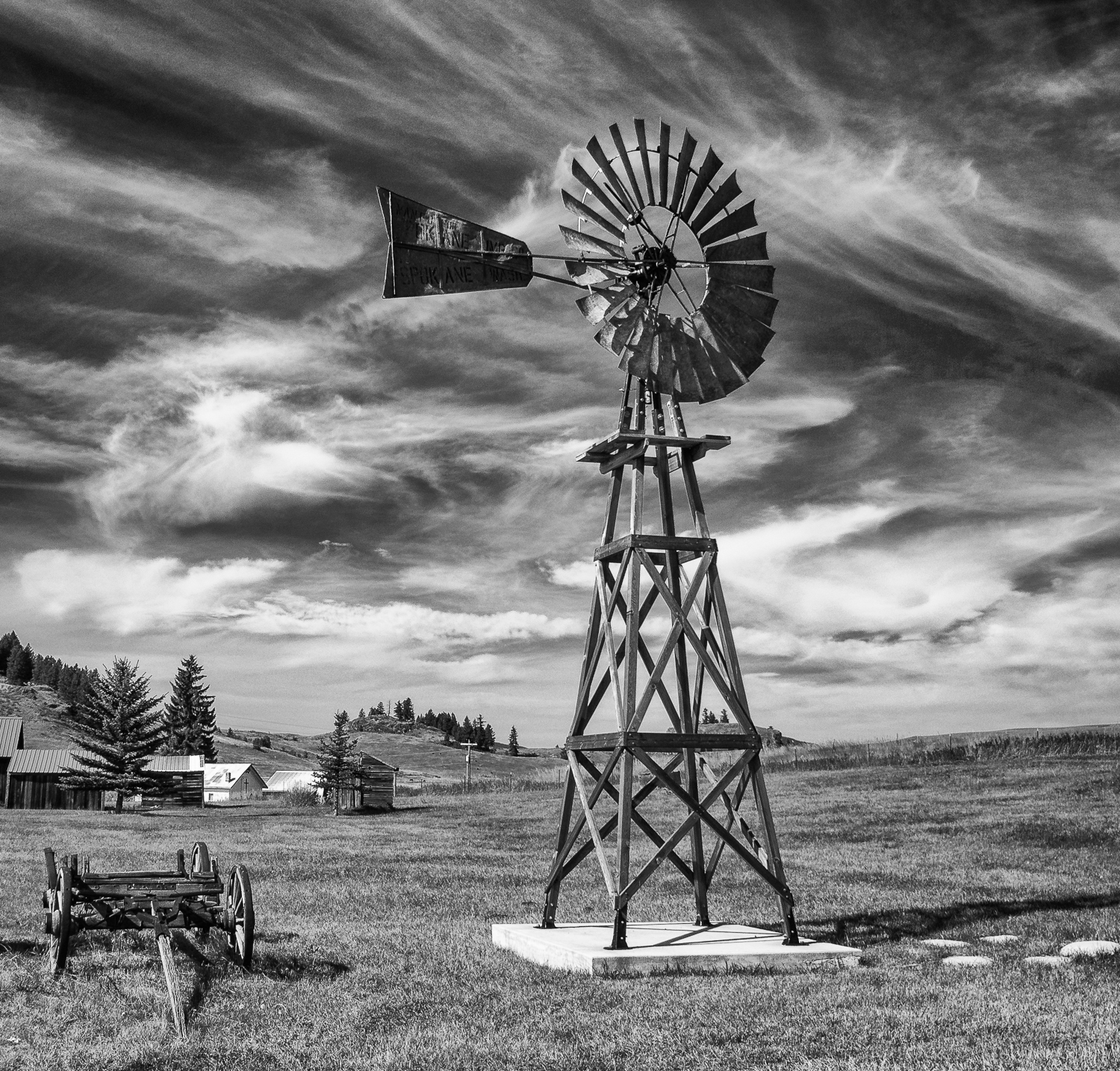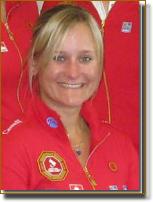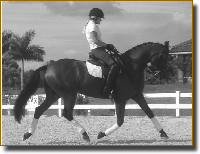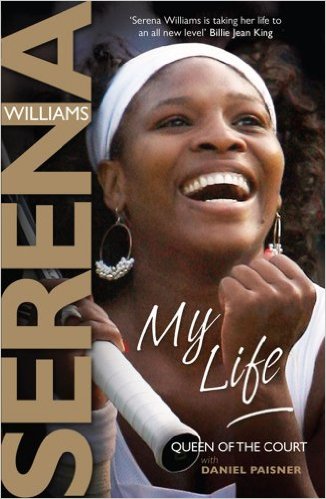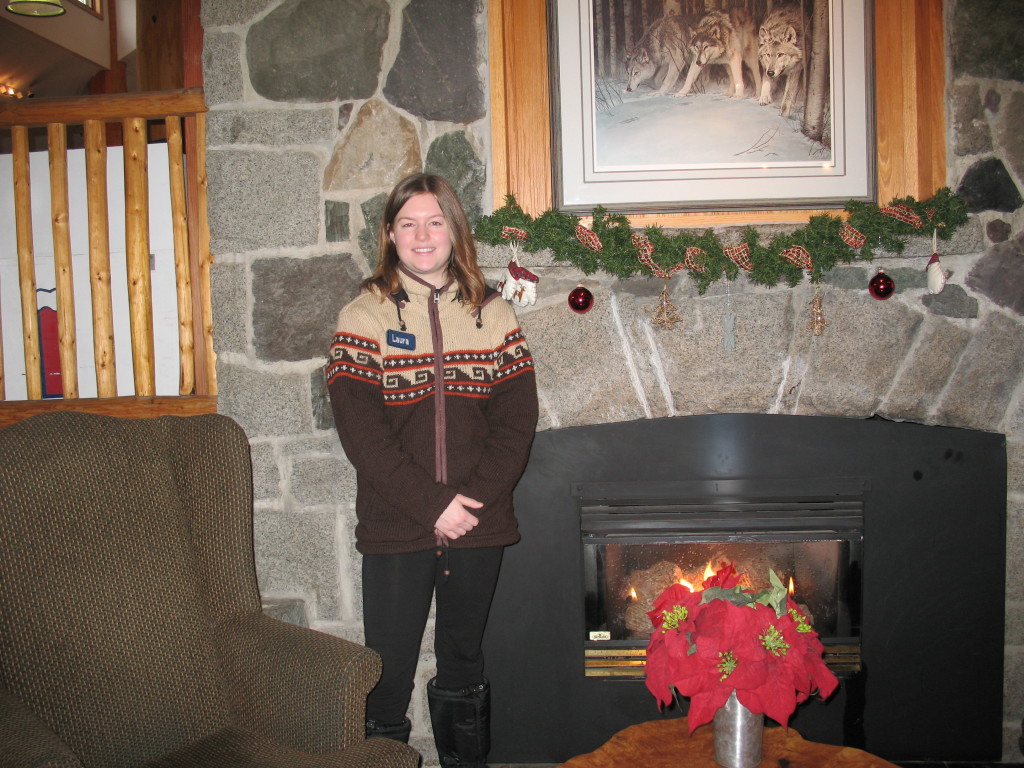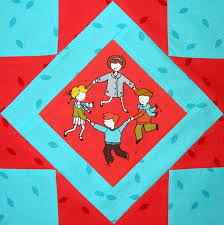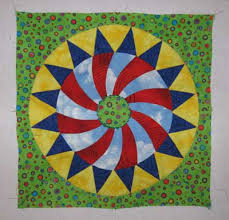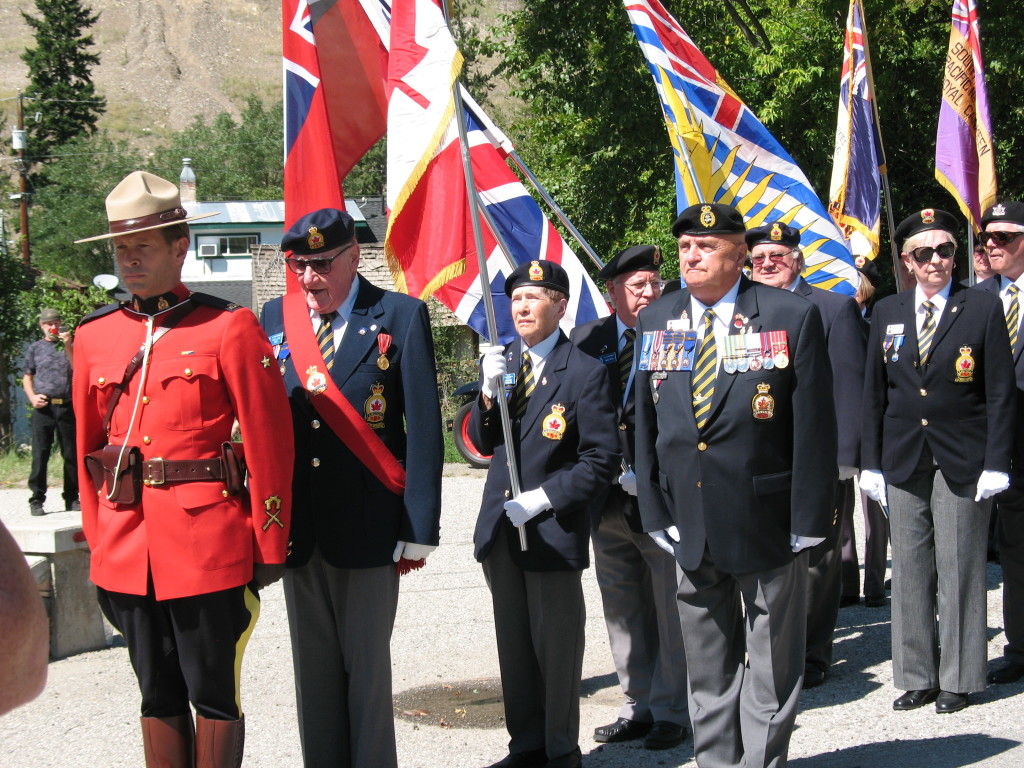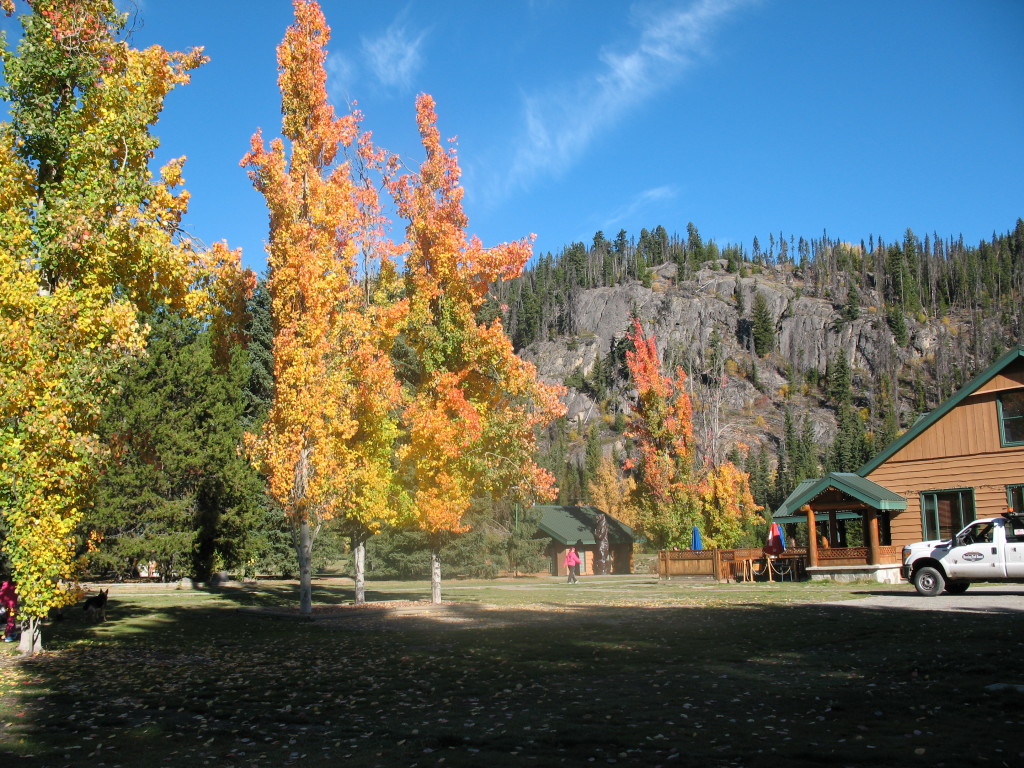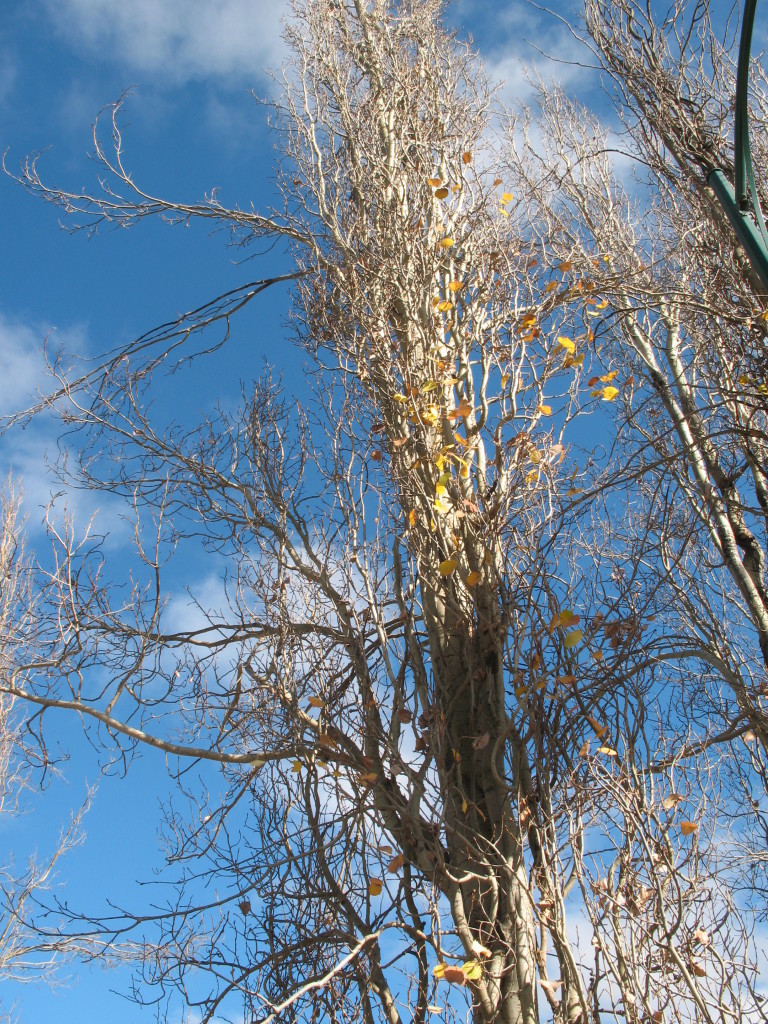
Domination of the holiday season by the corporate world appears to have doomed to obscurity the concept of the Christmas Spirit. Even a jovial mall Santa and brightly wrapped gifts under a tinsel bedecked evergreen cannot conjure up the deep joy and inner excitement many of us hope will enter our lives during this special season.
Linda and I were early in our dating relationship when we were gifted with a Christmas Spirit inducing memory. I was 19 and she was 16. It was the middle of December when the seed of the memory was sown on a road in a remote, heavily forested area behind Mission B.C.
I recall with great clarity the dark cloud that moved in rapidly and unexpectedly unleashed a drenching downpour. The windshield wipers could scarcely cope with the deluge. In the distance a grey figure became discernible, bumping in our direction beside the road. I slowed the car as we passed by. It was an elderly woman, her sodden coat wrapped tightly about her. Face toward the ground and shoulders slumping forward, she appeared feeble, miserable and utterly dejected.
Linda gasped and said, “she needs help!” I turned the car around and pulled alongside her. “Would you like a ride?” I asked. She nodded wearily, relief and gratitude on her disconsolate, lined face. I opened the rear door and, encumbered by her heavy wet coat, she clambered in awkwardly.
In a quiet, slightly quavering voice, she directed me to an obscure gravelled road. “There,” she said, “that’s where I live.” I pulled the car into a barely discernible driveway and opened the door for her. “Thank you,” she said, “I didn‘t think I’d get here.” Her teeth chattered but she declined my offer to assist her to the door of her shack.
I forgot about the woman, but Linda didn’t. The evening of December 24th, an almost full moon shining overhead, we drove again to the elderly woman’s home. Pale light shone through the only 2 windows. Walking toward the house, holding hands, we heard a dog bark inside. I knocked on the door, and the dog barked again. After waiting a long minute in the chill night air, I knocked a second time, more vigorously. Still no answer, so I made a fist and banged with considerable force. Excited barking suggested there might be more than one dog.
Sounds emanated from inside, as though the shack was shifting. Finally the door opened just enough to reveal the woman’s wispy face and uncombed hair. It was evident she wasn’t accustomed to company, especially two strangers after darkness had set in. She peered warily through the barely open door.
“Hello,” Linda said. “We picked you up a few weeks ago when it rained so hard. We’re here to wish you a Merry Christmas.”
Reassured, she stepped out onto the porch, clad in a flimsy house coat. “I’d invite you in,” she said apologetically, “but I have 17 dogs in there.”
She glanced up at the nearly full moon, then asked, “is it Christmas?” In the light of the moon a wistful expression on her lined face was clearly visible. “When I was a child my grandparents took me to church with them one Christmas Eve,” she said. “There was a manger and shepherds with sheep. A baby lay in the manger. They said it was Jesus. That was many years ago. I had forgotten.”

We talked for about 5 minutes, then saw she was shivering in the December air. Linda presented her with a small gift and we bade her farewell. She followed us to the car. As I backed onto the road, she stood clearly silhouetted in the light of the moon. Waving vigorously, she called, “Au revoir! Au revoir!” I turned down the car window, waved, and responded “auf wieder sehen!” As we drove away, she continued to wave and call out “au revoir!”
In time, Linda and I were married, adopted 2 wonderful children and pursued careers. I rarely thought about the little lady living alone with 17 dogs in an unpainted shack. A few years ago, just before Christmas I thought of her standing alone in the moonlight, waving with great fervour and calling “au revoir!”
Now each year, the memory rekindles the Christmas Spirit that otherwise might lie dormant within me. It’s a reminder that when I bring joy into someone’s life, I also receive joy.
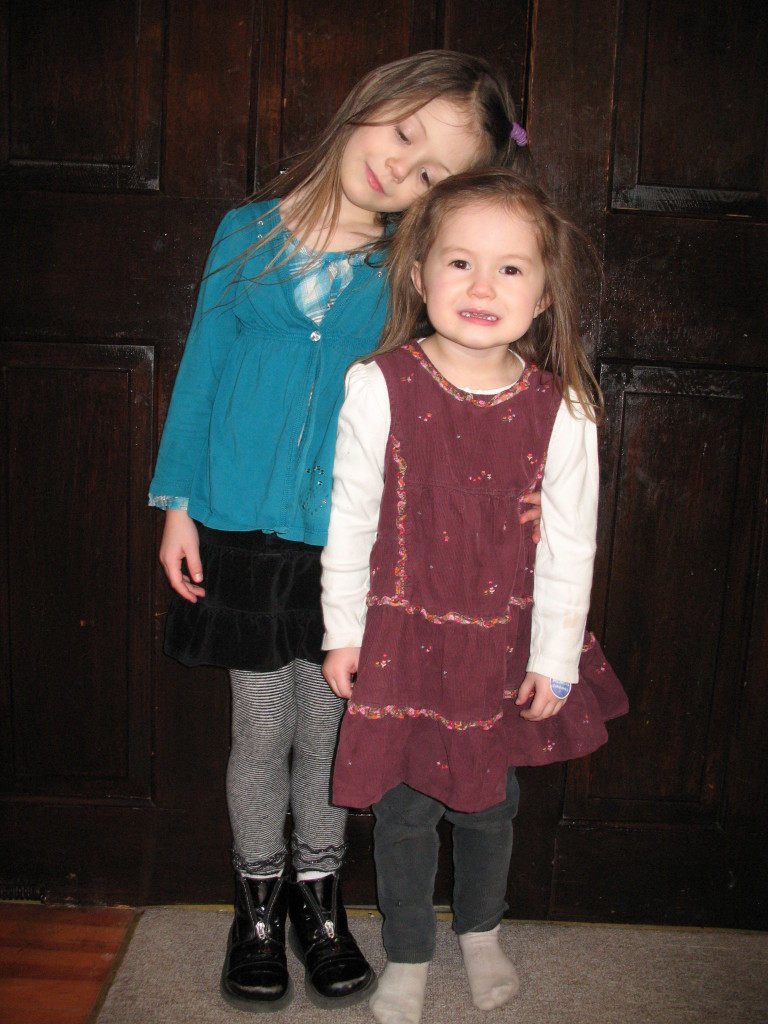
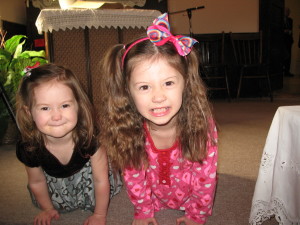 charm or charisma to capture their attention. They were in their own little world, sometimes crawling on the floor, pretending they were dogs, sometimes racing each other non-stop. Probably because I was an adult, their young minds could think of no reason to let me in.
charm or charisma to capture their attention. They were in their own little world, sometimes crawling on the floor, pretending they were dogs, sometimes racing each other non-stop. Probably because I was an adult, their young minds could think of no reason to let me in. I persevered though and asked their mother if I could take a few pictures. She agreed and although the girls didn’t stop long enough to pose, I snapped several shots of them in action. When I showed them the photos on my camera, they were intrigued at seeing themselves.
I persevered though and asked their mother if I could take a few pictures. She agreed and although the girls didn’t stop long enough to pose, I snapped several shots of them in action. When I showed them the photos on my camera, they were intrigued at seeing themselves. They are now willing to participate in my amateur photography and quickly come around to view the pictures. Evangeline even offered me an Oreo cookie which she had licked clean of the icing.
They are now willing to participate in my amateur photography and quickly come around to view the pictures. Evangeline even offered me an Oreo cookie which she had licked clean of the icing.
